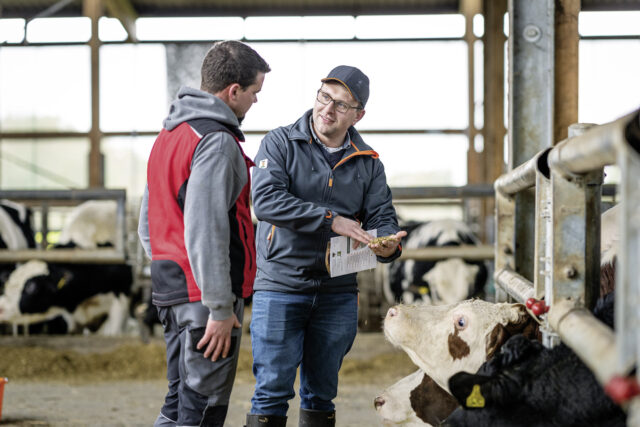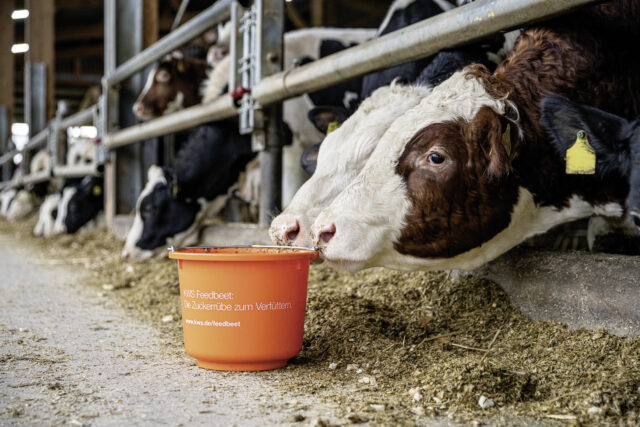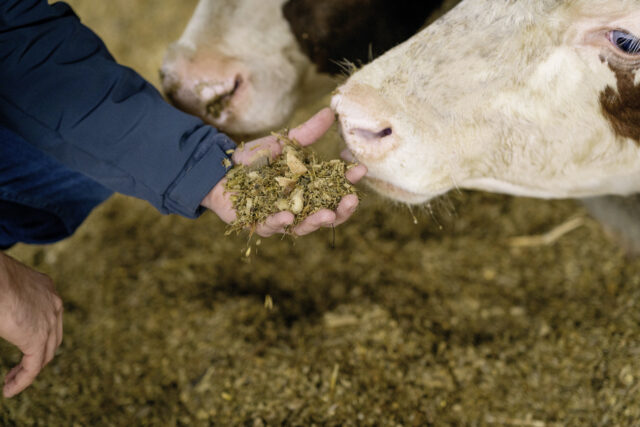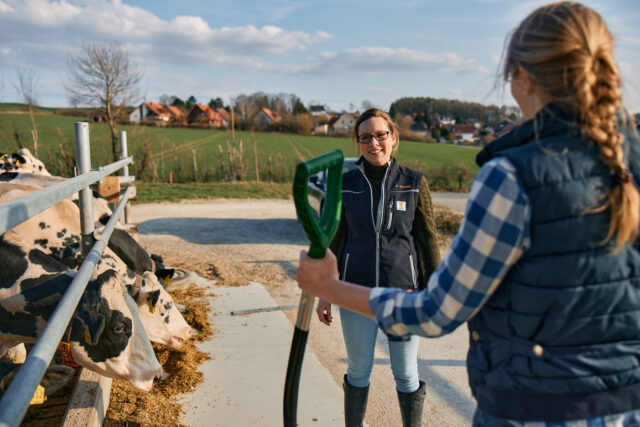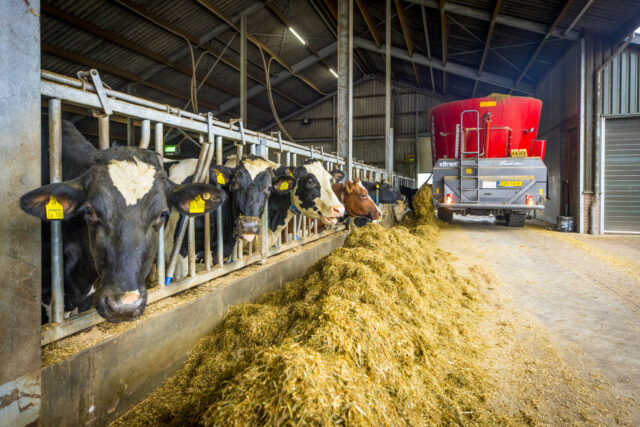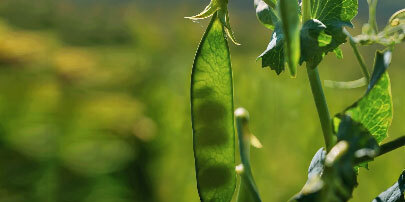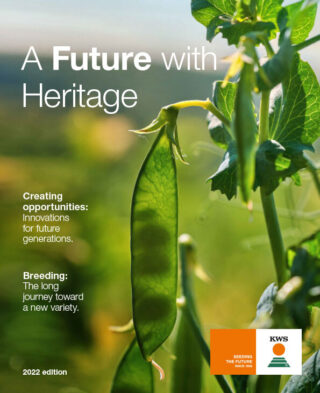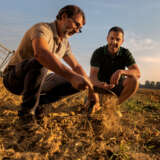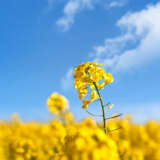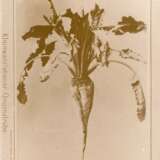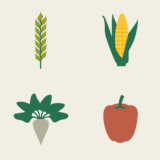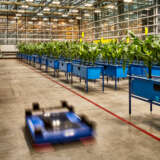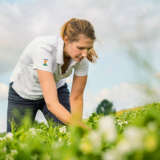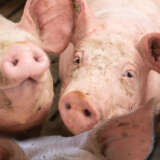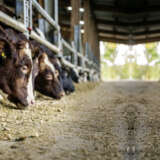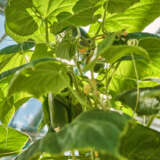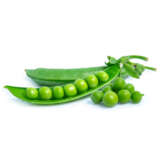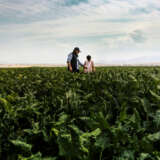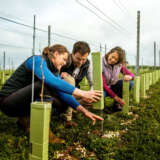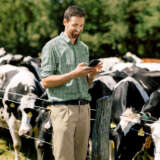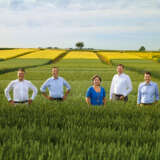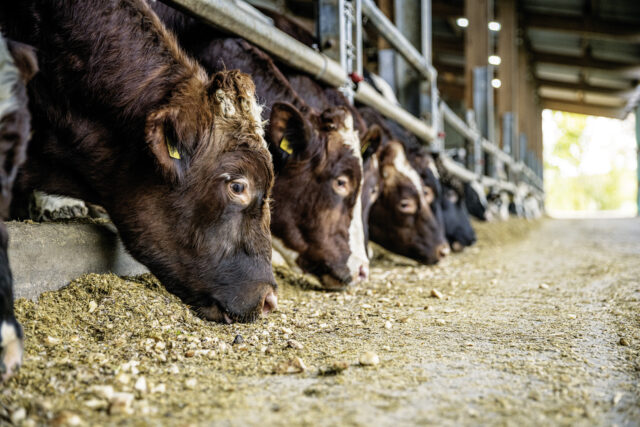
Feeding strategies
using hybrid rye, beet and corn – or a combination of all feedstuffs.
Hybrid rye: For happier pigs and a smaller CO₂ footprint.
A healthy intestinal flora is the basis for healthier, happier pigs – and the fodder they receive has a major influence on this. The increased use of rye in pig feed shows beneficial effects: This is the conclusion of the four-year 6-R concept research project initiated by KWS and funded by the German Federal Ministry of Food and Agriculture. Regionally grown hybrid rye demonstrates great potential for a sustainable, healthy pig feed. Among its positive qualities, hybrid rye improves intestinal health, reduces the risk of salmonella, increases the animals’ welfare and saves 80 kilograms of C0₂ per ton of grain. Cultivating hybrid rye requires less fertilizer, pesticides and water compared with other cereals, thus offering an attractive alternative in crop rotations. In addition, KWS has made breeding progress using PollenPlus® technology, which has succeeded in developing modern hybrid rye varieties that are virtually free of ergot – an important factor, especially in sow husbandry.
Beets: High-performance varieties for improved milk quality.
The kinds of beets used for fodder vary depending on the requirements of the feeding concept: In extensive systems, cattle graze on fodder beets on the field. In intensive systems, fresh sugarbeets or sugarbeets as part of a (mix) silage are fed to animals in the barn. KWS develops multidimensional beet concepts that combine knowledge in plant breeding with innovations in the cultivation, storage and feeding of beets. One example of this is the KWS developed Feedbeet concept that uses sugarbeets for feeding dairy cows and fattening cattle. Cows fed high-performance KWS Feedbeet varieties often achieve improved milk quality: A switch to fresh beets in rations can lead to an increase in the content of fat and protein in milk. Moreover, by growing beets on their farms, farmers become less dependent on externally purchased feed while improving production efficiency. At the same time, farmers obtain additional options for a healthy crop rotation.
Corn: Important energy supplier for dairy cattle.
Corn silage is an ideal core component to effectively feed cattle: Cost-effective to produce, silage corn serves as the key source of roughage on farms while supplying crucial energy in feeding dairy cattle. The market leader in silage corn, KWS focuses on the essential qualities of the corn variety in its breeding work. This includes the starch content and digestibility of the entire plant. In addition, the energy yield per hectare also influences the profitability of forage production. KWS assists farmers on the basis of their individual goals to select the optimum corn variety that most effectively combines yield and quality. Farmers can sustainably optimize cultivation by combining corn with other crops, thus ensuring additional income and efficient, year-round use of their available land. They also achieve climate- and resource-friendly results: Nitrogen is bound, nitrate and greenhouse gases are reduced, and less water is consumed.
Seed2FEED: Maximizing homegrown feed.
In a pilot project in the Benelux countries, KWS is working with the Belgian startup farmdesk to optimize the feeding systems used on dairy farms: The Seed2FEED concept brings together high-quality seed and agronomic advice with intelligent management software. Seed2FEED considers the full cycle of a dairy farm as well as supports the best approach to crop rotation planning, optimized use of available arable land, and improving and individualizing the composition feedstuffs grown by dairy farmers. Various modules can also calculate feed costs and track the cows’ daily milk yields. These factors shape the economic success of farms and contribute to a more sustainable agriculture.
